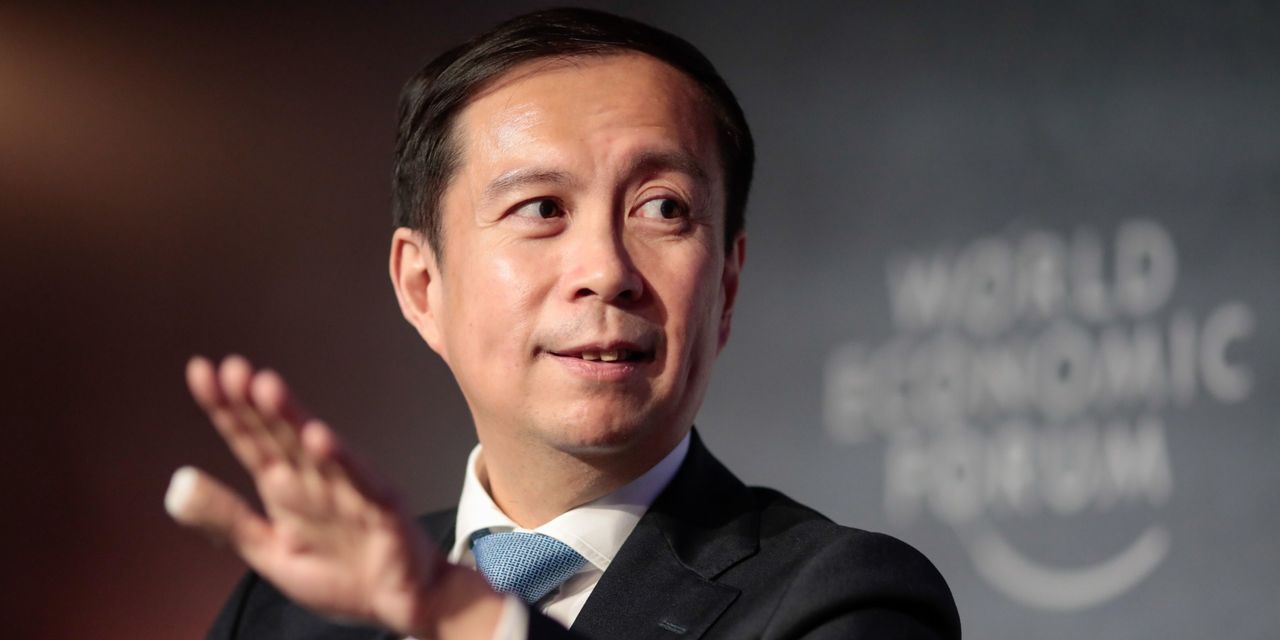
HONG KONG— Alibaba Group Holding Ltd. BABA 1.54% sought to reassure investors about its growth trajectory in presentations during its annual investor day, as it also unveiled environmental-sustainability goals, pledging to become carbon neutral in its operations by 2030.
One of China’s most iconic companies, Alibaba has been grappling with a mountain of challenges over the past year. A flurry of regulatory actions has clipped the wings of the once-highflying e-commerce giant and its fintech affiliate Ant Group Co. Jack Ma, the billionaire founder, has largely retreated from the spotlight. Growth on its platforms is slowing down as competitions rise.
Alibaba’s shares on the New York Stock Exchange have fallen about 50% over the last year. The company was hit with a record antimonopoly fine in April for what regulators described as the internet titan abusing its dominant market position.
Over presentations during its annual investor day Friday, Alibaba executives sought to reassure investors that it would overcome any short-term challenges it faces.
“We do recognize investors’ concerns about the slowing growth of our China retail marketplaces, which has been impacted by both slowing market conditions and increased competition,” said Maggie Wu, Alibaba’s chief financial officer.
Chief Executive Officer Daniel Zhang reiterated the firm’s commitment to expanding its market share in China’s e-commerce industry, particularly in sectors such as food, grocery and health products. He also told investors that the company would seek to increase its market presence in the smallest cities in China.
Mr. Zhang said Alibaba plans to invest in growing its international businesses and in developing advanced technologies, two areas seen as future revenue drivers for the internet firm, while it will also put resources toward retaining domestic users, the backbone of its business.
Over the past few months, Mr. Zhang has been devolving more power to various business units, to make them more agile at tackling competition. The company recently reshuffled its e-commerce teams and appointed a new chief financial officer.
The Hangzhou-based company slashed its growth forecast for this fiscal year barely a month ago. Citing more sluggish Chinese consumer spending and increasing competition, it said it expects revenue for its fiscal year ending in March to increase by 20% to 23%, down from its forecast of about 30% in May.
Still, some investors said they were more worried about regulatory uncertainties than about operational issues at the company. John Freeman, vice president for equity research at CFRA Research, said a big risk of buying Alibaba shares is the possibility of a delisting of Chinese companies from the U.S., given mandates by the U.S. Securities and Exchange Commission, as well as the opacity of Chinese authorities and their intentions.
Chinese economic data published Wednesday showed retail sales—a proxy for consumption—grew at 3.9% year-over-year in November, a dip from 4.9% growth the month before.
Alibaba’s environmental-sustainability goals, unveiled by Mr. Zhang, come as tech companies around the globe try to take on more environmental responsibilities. Companies from Apple Inc. to Microsoft Corp. MSFT -0.34% have announced commitments to reduce their carbon footprint within their own organizations and across their supply chains.
A significant decarbonization effort often requires companies to work with their suppliers and manufacturers. Alibaba relies on a wide web of manufacturers, logistics companies and other service providers. In addition to its carbon-neutrality goal, Alibaba also pledged cutting “carbon intensity”—a measure of carbon emissions relative to revenue—across its supply chain by half by 2030.
Actions that Alibaba plans to take include using more renewable energy for its data centers and working with logistics providers that employ electric vehicles. Alibaba Cloud is committed to powering its cloud computing with 100% clean energy no later than 2030. Amazon.com Inc. said last year that it would add a fleet of 100,000 electric delivery vehicles in a drive to be carbon neutral by 2040.
Alibaba didn’t say how much capital it plans to deploy to achieve these goals.
The online retailing giant said it would target emissions by participants on its platforms such as consumers and merchants with initiatives that reward or encourage environment-friendly behavior. Alibaba said the aim is to reduce carbon emissions by 1.5 gigatons generated by 2035.
“We will leverage our unique influence as a platform operator to mobilize actions and behavioral changes among consumers, merchants and partners in China and around the world,” Mr. Zhang said.
Alibaba will set up a new oversight body for environmental, social and governance issues that will include a sustainability committee at the board level chaired by independent director Jerry Yang, the Yahoo Inc. co-founder.
Write to Jing Yang at [email protected] and Liza Lin at [email protected]
Copyright ©2021 Dow Jones & Company, Inc. All Rights Reserved. 87990cbe856818d5eddac44c7b1cdeb8








